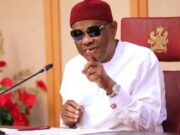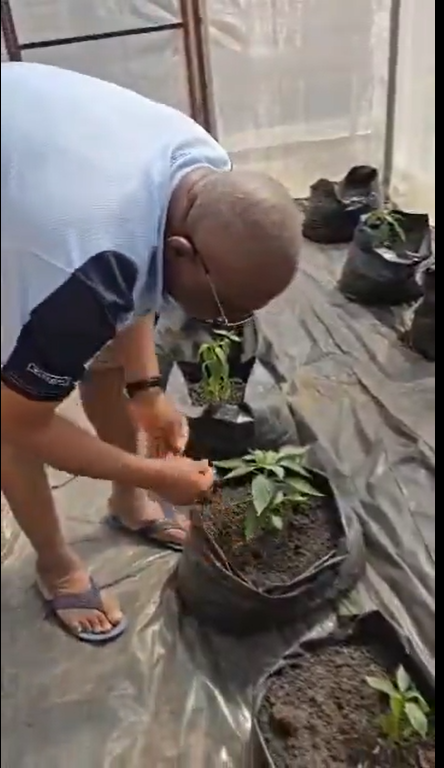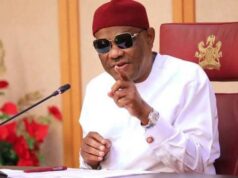As Nigeria grapples with a looming hunger crisis that could affect 33 million people by 2025, Bayo Onanuga, Special Adviser on Information and Strategy to President Bola Tinubu, has taken a personal step to address food insecurity by turning to farming at his home in Lagos.
In a brief 38-second video shared on X, Onanuga is seen tending to vegetables in his makeshift greenhouse, clearing away dry leaves.
He captioned the video, saying, “I am now a farmer-journalist, tending some vegetables planted in my house in Lagos. The vegetables replaced the grass.”
Onanuga’s decision to engage in farming comes at a critical time as the United Nations warns that food insecurity in Nigeria could worsen significantly in the coming year.
A recent report from the United Nations World Food Programme (WFP) predicts that the number of Nigerians at risk of hunger could rise sharply to 33 million in 2025, up from 25 million in 2024.
The factors contributing to this alarming increase include unprecedented inflation, climate-related disasters, and ongoing conflicts in key agricultural regions.
Recent floods have destroyed over 1.6 million hectares of farmland in the northern states, significantly reducing maize, rice, and sorghum production by around 1.1 million tonnes.
In the northeastern states of Borno, Adamawa, and Yobe, five million people are already facing acute food insecurity.
Additionally, the crisis is spreading to other areas, including Zamfara, Katsina, and Sokoto. Inflation, which hit a record high of 32.7% in September, has exacerbated the situation, making food unaffordable for millions of Nigerians.
Chi Lael, a WFP spokesperson, stated, “Record inflation, climate shocks, and ongoing conflicts are projected to push the number of food-insecure Nigerians to 33 million in 2025, a sharp increase from the 25 million who need assistance today. Never before have so many Nigerians gone without food.”
Experts have expressed concern over the growing number of children and pregnant women at risk of malnutrition.
Approximately 5.4 million children and 800,000 pregnant and breastfeeding women are at risk of acute malnutrition, with nearly 1.8 million children suffering from Severe Acute Malnutrition (SAM), requiring immediate intervention.
Onanuga, who has long advocated for individual involvement in food security, drew on historical examples of Nigeria’s agricultural efforts, such as the 1976 “Operation Feed the Nation” initiative by former President Olusegun Obasanjo, and the government’s response to shortages of essential items like rice, milk, and sugar in 1984 during Muhammadu Buhari’s first term.
He noted that this is not the first time Nigeria has faced such a crisis, but emphasized the importance of both government and individual efforts to address the problem.
First Lady Oluremi Tinubu has also supported this call for greater agricultural participation.
Earlier this year, she urged Nigerians to engage more in farming, stating, “we can grow our food. Everybody should grow something.”
During her meeting with Amina Mohammed, the Deputy Secretary-General of the United Nations, at the State House in Abuja, Tinubu reinforced the government’s focus on agriculture as part of the Renewed Hope Initiative, which aims to boost sectors such as agriculture, empowerment, education, health, and social welfare.

















